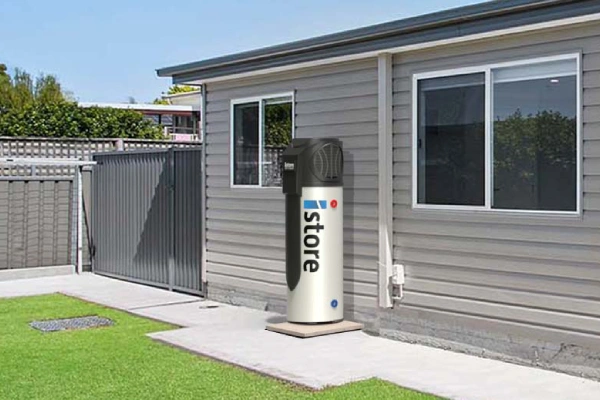Harnessing Energy Efficiency and Sustainability: The Heat Pump Hot Water Revolution in Melbourne
In the ever-evolving landscape of home technologies, the quest for energy-efficient and environmentally friendly solutions has become paramount. Among these, the heat pump hot water system has emerged as a game-changer, especially in Melbourne where climate consciousness and resource efficiency are top priorities. In this blog, we delve into the fundamental principles of heat pump hot water systems, shedding light on their efficiency and eco-friendliness in comparison to traditional water heating methods.
Understanding the Basics: How Do Heat Pump Hot Water Systems Work?
A heat pump hot water system operates on the principle of extracting heat from the ambient air and transferring it to the water, raising its temperature. The key components include a compressor, an evaporator, a condenser, and a refrigerant. Here’s a simplified breakdown of the process:
- Evaporation: The system starts by evaporating a refrigerant in the evaporator, absorbing heat from the surrounding air. Even in Melbourne’s moderate climate, there’s heat available for extraction.
- Compression: The compressor then increases the pressure of the refrigerant, causing its temperature to rise significantly.
- Condensation: The heated refrigerant is then passed through a condenser, where it releases the absorbed heat to the water, raising its temperature.
- Expansion: The refrigerant, now cooler, goes back to the evaporator, and the cycle repeats.
What sets heat pump hot water systems apart is their ability to efficiently extract and utilise ambient heat, making heat pump hot water systems highly effective even in conditions where traditional heaters may struggle. Heat Pump Hot Water is based around a refrigeration circuit similar to a Split System Air Conditioner or a Fridge.
Efficiency Redefined: Heat Pump vs. Traditional Water Heaters
Efficiency is the buzzword when it comes to heat pump hot water systems, and Melbourne’s residents stand to gain significantly in this regard. Traditional water heaters, be they electric or gas-powered, operate by directly heating the water, often leading to energy wastage. Heat pump hot water systems, on the other hand, use minimal electricity to transfer existing heat to the water, making them far more energy-efficient.
In Melbourne’s temperate climate, the heat pump’s efficiency remains high, and it doesn’t experience the same performance decline in colder weather that traditional heaters might. This is a crucial advantage for those chilly Melbourne mornings when a hot shower becomes a daily necessity.
Beyond efficiency, the eco-friendly footprint of heat pump systems is a major draw. Traditional water heaters often rely on fossil fuels, contributing to greenhouse gas emissions. Heat pumps, powered by electricity, can be integrated with renewable energy sources like solar power, further reducing their environmental impact.
Heat Pump Hot Water Systems – The Green Choice for Melbourne: Environmental Benefits
Melbourne’s commitment to sustainability aligns seamlessly with the environmental benefits of heat pump hot water systems. These Hot Water systems produce significantly fewer greenhouse gas emissions compared to traditional heaters, helping homeowners contribute to Melbourne’s broader eco-friendly initiatives.
Furthermore, the reduction in electricity consumption, especially during peak demand periods, supports overall energy conservation efforts. As Melbourne continues to prioritise a greener future, the adoption of heat pump hot water systems becomes not just a personal choice but a community-driven effort toward a more sustainable city.
Investing in the Future: Economic Considerations
While the initial cost of installing a heat pump hot water system may be slightly higher than that of traditional heaters, the long-term economic benefits are substantial. Lower energy bills, government incentives, and reduced maintenance costs make heat pumps an investment that pays off over time. In Melbourne’s forward-thinking landscape, where residents are increasingly mindful of both their environmental impact and long-term financial sustainability, heat pump systems present a compelling case.
Conclusion: Embracing the Heat Pump Hot Water Advantage in Melbourne
In the realm of water heating solutions, the heat pump stands as a beacon of efficiency, sustainability, and forward-thinking technology. Melbourne, with its commitment to environmental responsibility and energy efficiency, is the perfect setting for the rise of heat pump hot water systems. As homeowners look to the future, the heat pump’s ability to provide hot water while minimising energy consumption and environmental impact positions it as a key player in the quest for a greener, more sustainable Melbourne. Embracing this technology is not just an investment in comfort; it’s an investment in a cleaner, more eco-conscious future for Melbourne and beyond.





